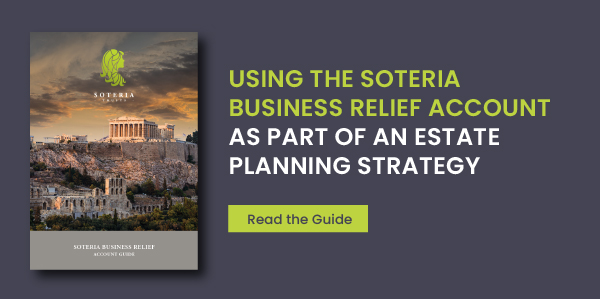Non Dom Status Changes 2025: What They Mean for Your Estate Planning

For individuals who were formally deemed non-domiciled in the UK, the financial landscape has undergone its most significant transformation in decades. The abolition of the remittance basis regime, effective from April 2025, represents a fundamental shift in how the UK taxes its international residents. If you are a non dom, understanding these changes is not just important—it is essential for protecting your wealth and securing your family’s future.
These new non dom rules will have far-reaching consequences, particularly for Inheritance Tax (IHT) and long-term estate planning for non-doms. The sense of uncertainty can be unsettling, but with proactive planning, you can navigate this new environment with confidence. This guide will provide a clear, empathetic overview of what is changing, how it affects your estate, and the steps you should consider taking now.
We will walk you through:
- The end of the non-dom regime & What makes you a UK Tax Resident
- The new Foreign Income and Gains (FIG) regime.
- The profound impact on UK Inheritance Tax.
- Strategies to adapt your estate plan effectively.
- A case study illustrating the importance of timely action.
The End of an Era: Abolition of the Remittance Basis
For over two decades, the UK’s non-domiciled tax regime has allowed individuals whose permanent home is outside the UK to pay UK tax only on their UK income and gains, provided their foreign income and gains were kept offshore. By paying an annual charge, long-term residents could continue to benefit from this ‘remittance basis’.
From 6 April 2025, this system was abolished and replaced by a new framework based purely on tax residency, fundamentally altering the financial equation for thousands of individual residents who were non dom during 2025.
Introducing the New 4-Year Foreign Income and Gains (FIG) Regime
The cornerstone of the new system is the Foreign Income and Gains (FIG) regime. This new scheme is designed for individuals who become UK tax residents after a period of non-residence.
Here is what you need to know:
- Eligibility: The FIG regime is available to individuals who have been non-UK residents for at least 10 consecutive tax years.
- The Benefit: If you qualify, you will not pay UK tax on any foreign income and gains for the first four years of your UK residency. You are able to take these funds into the UK during this period without incurring any UK tax charges.
- The Cliff-Edge: After these first four years of UK residency, you will lose access to the FIG regime. From the start of your fifth year of tax residence, you will be taxed on your worldwide income and gains, just like any other UK resident.
This new system is much simpler but far less generous than the old one, especially for long-term residents. The transition from the old to the new rules requires careful and immediate attention.
The Critical Impact on Inheritance Tax (IHT)
Perhaps the most profound change for estate planning for former non-doms lies in the reforms to Inheritance Tax which became effective at the same time as FIG. Until April 2025, IHT for non-doms was determined by their domicile status. If you were non-UK domiciled, only your UK-sited assets were exposed to UK IHT. Your worldwide assets were outside the scope.

The government has now implemented a move to a residence-based system for IHT with the emphasis again being on residency,:
- Worldwide IHT after 10 Years: Under the new rules, once you have been a UK resident for 10 years. At that point you become a Long Term Resident (LTR) and your entire worldwide estate become subject to UK IHT. This eliminates the long-standing protection that being non domiciled offered for foreign assets.
- The 10-Year Tail Provision: The exposure to UK IHT on your worldwide assets do not cease the moment you leave the UK. The new LTR rules include a ‘tail’ provision, meaning you will remain liable for UK IHT on your worldwide assets for up to 10 years after you cease to be a UK resident.
This is a monumental shift. It means that long-term non-dom residents who previously only had to worry about IHT on their UK property or bank accounts will now need to consider their entire global wealth. Those with assets held in trust are also affected by the new rules. Non-UK assets settled into a trust before April 2025 retaining some protection, whereas any assets placed into trust after that date will not have the same benefits.
Strategies to Adapt Your Estate Plan
These sweeping FIG & LTR rules demand a proactive and strategic review of your financial affairs. Not acting before the rule changes has resulted in fewer opportunities being available but there are still things you can do Here are some strategies to discuss with your professional advisor.
1. Review and Potentially Restructure Existing Trusts
Trusts have long been a vital tool for non-doms. Under the old rules, Excluded Property Trusts (EPTs) were used to shield non-UK assets from IHT indefinitely. If you settled non UK assets into an EPT before April 25 there is a good chance that you will retain the IHT protection but it’s now too late to use this option. i
2. Consider Your Long-Term Residency Plans
The new 10-year threshold for worldwide IHT liability makes your residency timeline a central pillar of your estate plan.
- Actionable Step: You must carefully map out your intentions. Do you plan to remain in the UK for more than 10 years? If so, planning for worldwide IHT exposure becomes a necessity. If you plan to leave before the 10-year mark, you need to understand the implications of the 10-year tail provision and how to manage your assets accordingly.
3. Take Advantage of Transitional Provisions
To ease the transition, the government has proposed some temporary reliefs. One key provision is a two-year window (for the tax years 2025/26 and 2026/27) during which individuals who lose access to the remittance basis can bring previously accrued foreign income and gains to the UK and pay a reduced tax rate of 12%.
- Actionable Step: Temporary Repatriation Facility (TRF) is a valuable opportunity to simplify your affairs and take capital to the UK in a tax-efficient manner. Analysing your offshore wealth and deciding whether to utilise this facility should be a priority.

A Case Study: The Cost of Inaction
Let’s consider Mr. Chen, a Singaporean national who has lived in the UK for 12 years. He was formerly a non-dom who benefited from the remittance basis. His assets include a £2 million London flat, a £5 million investment portfolio in Singapore, and other assets in Asia worth £3 million.
- Under the old rules: Only his £2 million London flat is exposed to UK IHT. Assuming he has used his nil-rate band, the potential IHT liability is around £600,000 (40% of £1.50m, after considering the RNRB). His £8 million of foreign assets were not in scope and therefore protected.
- Under the new rules: As he has been UK resident for over 10 years, he is classed as an LTR and therefore his entire £10 million worldwide estate will be subject to UK IHT. The potential IHT bill could soar to approximately £3.8 million.
Had Mr. Chen sought advice before April 25 when the window for establishing an Excluded Property Trust to protect foreign assets then his situation would be very different today.
There are still other options available to him which would provide different types of tax protection, such as establishing a Family Investment Company (FIC) or utilizing Private Placement Life Insurance (PPLI).
These sophisticated structures, while different from an EPT, offer considerable IHT mitigation opportunities for his £8 million in foreign assets, preserving a substantial portion of his legacy for his heirs. This demonstrates that even with changes in regulations, strategic planning remains crucial and effective.

Securing Your Future in a New Tax World
The changes from domicile/non domicile to being LTR from April 2025 are not merely a technical adjustment; they are a complete re-writing of the rules for international families in the UK. The shift from a domicile-based system to a residency-based one for tax and IHT requires a fundamental re-evaluation of your estate planning.
The feelings of concern and confusion these changes have brought to many are entirely understandable. Our role is to provide the clarity and expert guidance so you can navigate this transition with security and peace of mind. You may have already missed taking advantage of the old rules before the new ones took hold but that doesn’t mean there is nothing else that can be done. By reviewing your circumstances and acting decisively, you can restructure your affairs to align with the new reality, protect your assets, and ensure your wealth is preserved for generations to come.
We are here to help you understand your unique position and build a robust, forward-looking plan that secures your legacy in this new environment. Contact Soteria Trusts and learn how we can help you protect your wealth and legacy from unnecessary taxes.